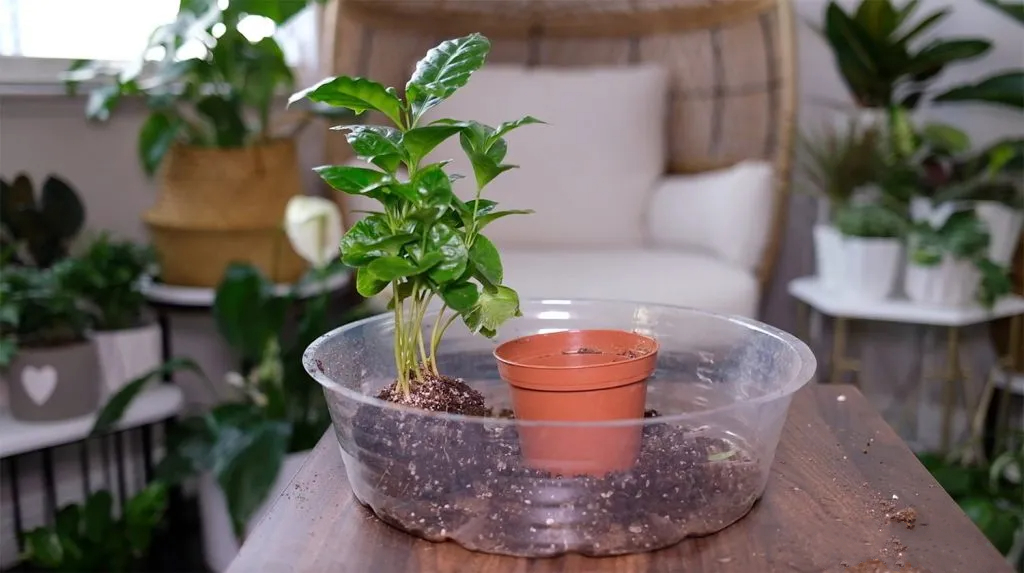If you’re a cat owner and a plant enthusiast, you might be wondering whether those beautiful snake plants you have in your home are safe for your feline friend. Snake plants, scientifically known as Sansevieria, are popular for their striking appearance and low-maintenance nature. In this guide, we’ll delve into the question: Are snake plants toxic to cats?
Understanding Snake Plants
Snake plants are native to West Africa and are a common choice for indoor decoration due to their unique appearance and air-purifying qualities. With their long, upright leaves that resemble snakes, they add a touch of elegance to any space. These plants come in various species and cultivars, each with slightly different leaf patterns and colors.

The Concern: Snake Plants and Cats
The concern regarding snake plants arises from their potential toxicity to cats. Snake plants contain saponins, which are natural compounds found in many plant species. These saponins can be toxic to cats if ingested in significant amounts. The plant’s leaves contain these compounds as a defense mechanism against herbivores in the wild.
The Level of Toxicity
While snake plants are considered mildly toxic to cats, the good news is that severe poisoning is relatively rare. Ingesting small amounts of the plant typically leads to minor symptoms such as drooling, vomiting, or diarrhea. The saponins can cause gastrointestinal upset in cats, but the effects are usually not life-threatening. However, every cat is unique, and some felines might be more sensitive to the plant’s compounds.
Symptoms of Snake Plant Poisoning
If your cat has ingested snake plant leaves or parts, you might observe certain symptoms within a few hours. These can include:
- Drooling: Excessive drooling is a common early sign of plant ingestion.
- Vomiting: Cats might vomit to expel the plant material from their system.
- Diarrhea: Digestive upset can lead to diarrhea.
- Lethargy: Your cat might appear more tired or sluggish than usual.
- Loss of Appetite: A decreased interest in food can signal discomfort.
What to Do If Ingestion Occurs
If you suspect that your cat has ingested snake plant leaves, it’s essential to take prompt action:
- Contact Your Vet: Consult your veterinarian immediately for guidance.
- Monitor Symptoms: Keep an eye on your cat’s symptoms and behavior.
- Provide Water: Ensure your cat stays hydrated during the ordeal.
- Avoid Home Remedies: Don’t attempt to treat your cat using home remedies without professional advice.
Keeping Your Cat Safe
To prevent accidental ingestion and ensure your cat’s safety, consider the following precautions:
- Elevate Plants: Place snake plants in areas your cat cannot access.
- Supervision: When introducing new plants, supervise your cat’s interaction.
- Offer Alternatives: Provide your cat with cat-friendly grass or greens.
- Distract with Toys: Keep your cat mentally engaged to deter plant exploration.

Conclusion
In conclusion, while snake plants do contain toxins that can be harmful to cats, the level of toxicity is generally low and severe cases are rare. If you choose to keep snake plants in your home and you have a curious feline companion, take preventive measures to ensure your cat’s safety. If you ever suspect your cat has ingested any part of a snake plant, don’t hesitate to contact your veterinarian for guidance. With proper care and attention, you can enjoy the beauty of snake plants while keeping your cat out of harm’s way.




